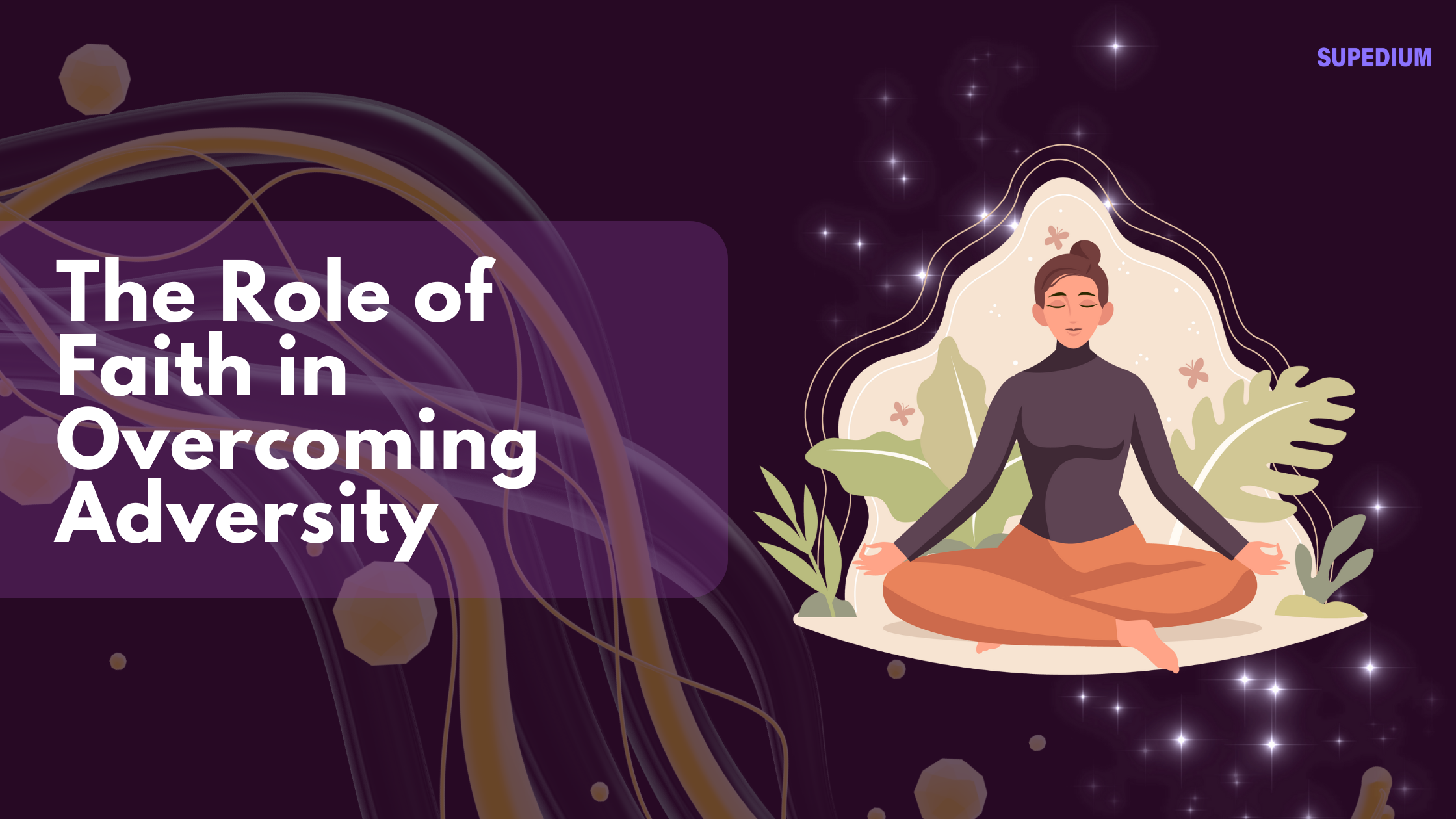Table of Contents
![]()
Introduction
Adversity is an inherent part of life, presenting itself in various forms such as personal challenges, social struggles, or existential crises. Faith, in its broadest sense, refers to a belief or trust in something beyond the immediate, often in a higher power or a guiding principle. This article explores how faith can play a critical role in navigating and overcoming adversity, drawing on psychological theories, religious perspectives, and real-world examples.
Theoretical Framework
Psychological Perspective
Faith contributes significantly to psychological resilience, which is the capacity to recover quickly from difficulties. Resilience involves various factors, including emotional strength, cognitive flexibility, and supportive relationships. Faith often provides a foundational sense of purpose and meaning, which can be crucial in maintaining hope and optimism during challenging times.
For instance, faith can foster a sense of hope by framing adversity as part of a larger plan or purpose. This perspective can enhance an individual’s ability to endure and overcome difficulties. Optimism, closely related to faith, is the expectation that good things will happen despite current hardships. Faith can amplify this optimism by reinforcing the belief that there is a reason for hope beyond immediate circumstances.
Religious and Spiritual Perspectives
Different religions offer unique insights into how faith helps individuals cope with adversity:
- Christianity: In Christian teachings, faith is often seen as a source of strength and comfort. Belief in a higher power provides assurance that one is not alone in their struggles. The concept of divine providence suggests that God has a plan for each individual, which can be a source of solace and motivation during tough times.
- Islam: In Islam, faith in God’s plan (Tawakkul) is fundamental. Muslims believe that God is all-knowing and all-powerful, and that everything happens according to divine wisdom. This belief encourages individuals to trust in God’s plan and to seek solace in prayer and submission.
- Buddhism: Buddhism teaches that faith in the teachings of the Buddha and the inherent nature of the universe can help individuals navigate suffering. Through practices like meditation and mindfulness, faith in personal and universal truths can provide peace and perspective amidst adversity.
- Hinduism: Faith in Hinduism often revolves around the belief in divine purpose and karma. Hindus may view challenges as opportunities for spiritual growth and as consequences of past actions. This belief can foster a sense of acceptance and resolve.
Common themes across these religions include the idea of divine support and guidance, the role of prayer and rituals, and the belief in a larger purpose or plan that transcends immediate difficulties.
The Impact of Faith on Overcoming Adversity
Personal Examples
Historical and contemporary figures often illustrate the power of faith in overcoming adversity. For example:
- Martin Luther King Jr.: His faith in justice and equality was a driving force behind the Civil Rights Movement. King’s belief in a just cause and divine support sustained him through numerous challenges and ultimately contributed to significant societal changes.
- Nelson Mandela: Mandela’s faith in reconciliation and justice helped him endure 27 years of imprisonment and lead South Africa through a peaceful transition from apartheid. His faith in his country’s potential for harmony and justice was instrumental in overcoming enormous personal and national adversity.
Personal stories also highlight the role of faith in individual triumphs. Many people recount how their spiritual beliefs provided strength and comfort during illnesses, financial crises, or personal losses. These testimonies often emphasize faith’s role in offering hope and purpose during seemingly insurmountable challenges.
Community and Support Systems
Faith-based communities and organizations play a crucial role in providing support during times of adversity. Religious communities often offer emotional support, practical assistance, and a sense of belonging. For example, community prayer groups and faith-based counseling can provide comfort and practical help to those in need.
Faith-based organizations also contribute through charitable work and social support services. These organizations often offer counseling, financial aid, and other forms of assistance, demonstrating how faith can translate into tangible support for individuals facing adversity.
Challenges and Criticisms
While faith can be a powerful tool for overcoming adversity, it is not without its challenges and criticisms:
- Faith vs. Evidence-Based Approaches: Critics argue that faith-based approaches can sometimes delay practical solutions or medical treatment. It’s important to balance faith with evidence-based practices to ensure comprehensive support during adversity.
- Misuse of Faith: Faith can be exploited for personal gain or used to promote fatalism and passivity. It is essential to approach faith with a critical mindset, ensuring that it encourages proactive and positive responses rather than resignation.
- Diverse Reactions to Adversity: The impact of faith varies among individuals. Some may find faith to be a significant source of strength, while others may not experience the same benefits. Personal differences in faith and coping mechanisms play a role in how effectively faith addresses adversity.
Case Studies
- Faith and Chronic Illness: Case studies of individuals with chronic illnesses often reveal how faith can aid in managing long-term health challenges. For instance, some patients report that their faith provides emotional support and helps them maintain a positive outlook despite ongoing medical issues. Comparing faith-based and secular coping mechanisms can highlight the unique contributions of faith in managing chronic conditions.
- Faith in Natural Disasters: Communities affected by natural disasters often draw on faith to recover and rebuild. For example, faith-based organizations frequently provide disaster relief and support, demonstrating how faith can facilitate both collective and individual recovery processes.
Practical Implications
Integrating faith with practical support can enhance the overall effectiveness of coping strategies. Combining faith-based approaches with psychological and medical support can offer a holistic response to adversity. Developing programs that incorporate faith-based principles, while also addressing practical needs, can be beneficial.
Faith-based interventions and programs, such as those offered by religious organizations, can provide valuable support and resources. Evaluating the effectiveness of these programs can help in refining approaches to ensure they meet the needs of those facing adversity.
Conclusion
Faith plays a multifaceted role in overcoming adversity, offering emotional strength, hope, and a sense of purpose. Theoretical perspectives, religious teachings, and personal examples all highlight the ways in which faith can support individuals and communities during challenging times. While there are challenges and criticisms associated with faith, its positive impact on resilience and recovery is evident. Balancing faith with practical support and maintaining a critical perspective can enhance its effectiveness in navigating adversity.
Share This





Be the first to comment